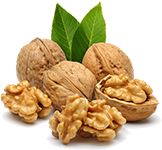
- Famous Brand Promotion:
 010-63457516
010-63457516 -

 Favorites
Favorites

 010-63457516
010-63457516
 Favorites
Favorites
Millions of us in the UK alone regularly wake up in a bad mood because of a bad night's sleep. But though how much we need varies from person to person, around seven-nine hours is generally accepted as a healthy amount for most people. There are lots of reasons people feel tired, but could your lack of sleep be thanks to what you ate for dinner? Here are some key foods that help you catch the shut eye you need.
Sleepy Fruit
The humble kiwi is packed with vitamin C, which is thought to encourage a better night's sleep.Research made by the School of Nutrition and Health Sciences at Taipei Medical University in Taiwan found that in a study of 24 participants who consumed two kiwis each evening, one hour before bedtime for four weeks, there were dramatic improvements to “sleep onset, duration, and efficiency in those with self-reported sleep disturbances.” Or reach for a punnet of cherries, they're one of the few foods that contain a natural source of melatonin. Cherry juice is a good option and has been shown to help adults sleep so try a glass about an hour before bed.
Whole Grain Bread
Fancy a late-night nibble? Then snack on a slice of whole grain bread, rackers or oat cakes.Whole grain carbs help to increase levels of tryptophan within the body, an essential amino acid that stimulates the creation of serotonin/melatonin, which in turn, work to control your sleep/wake patterns without spiking blood sugar levels.Combine it with other foods that contain tryptophan - such as turkey, peanut butter or cottage cheese - to help the body easily absorb the nutrient.And while it's not a good idea to eat masses right before you go to bed, a small carb-based snack can help keep you from waking up in the night if that's a problem.
Hummus
Similarly, hummus makes a pretty good sleep inducing food. The chickpea base is high in vitamin B6, which, when incorporated within your day-to-day diet, can help beat insomnia.When consumed, vitamin B6 converts some of the tryptophan in your body to niacin, which also helps to control your sleep/wake cycle. What’s more, hummus contains mood-boosting amino acids phenylalanine and tyrosine that work to promote a successful night’s sleep. Team with vitamin A-rich carrots or bell peppers for additional sleep-boosting goodness. Avocados are also a great bedtime option because they're high in magnesium, so if you don't fancy a hummus dip,try guacamole instead.
Honey
If you’ve got a sweet tooth, snaffle some honey before bedtime. Not only is it a source of sleep-inducing carbohydrates, but its natural sugar content also helps to raise insulin levels just enough to speed up the rate at which tryptophan enters your brain, improving the quality of your sleep and leaving you lovely and relaxed as it does so. Combine with a delicious cup of camomile tea. Camomile is a famed insomnia buster, providing a calming warmth and caffeine-free floral taste that’s set to have you snoozing in no time.
Salmon
Just when you thought salmon couldn’t get any healthier, turns out it’s the perfect dinner for poor sleepers.Again, it’s the vitamin B6 content of salmon that promotes a sound night’s sleep; it boosts levels of sleep-regulating hormone, melatonin in the body, keeping your sleep/wake patterns in check.That combined with salmon’s super-healthy omega 3 fatty acids; this satisfying source of protein will banish night-time hunger pangs, and leave you well rested, ready for the morning.
Almonds
Getting the munchies just before bedtime happens to the best of us. But rather than reaching for a bar of chocolate – even dark chocolate; the caffeine will leave your mind in overdrive – crunch on some almonds. Nuts are naturally high in magnesium: an essential mineral needed for a peaceful night’s sleep. Magnesium helps to calm the nerves and relax the muscles, working to ensure a healthy nervous system. If you’re deficient in this mineral, you may find yourself more irritable, stressed and unable to sleep. We can’t sleep because we’re stressed, and we’re stressed because we can’t sleep; all the while, our magnesium levels steadily deplete. When stressed, magnesium is released into the body, which can quickly decrease if you’re constantly on edge. Relax with a handful of magnesium filled almonds, or sesame seeds/Brazil nuts if you prefer.
And what to avoid?
- Big meals before you go to bed
- Anything with caffeine
- Alcohol (even if it does help you nod off in the first place)
- Fatty Foods
Happy sheep counting!